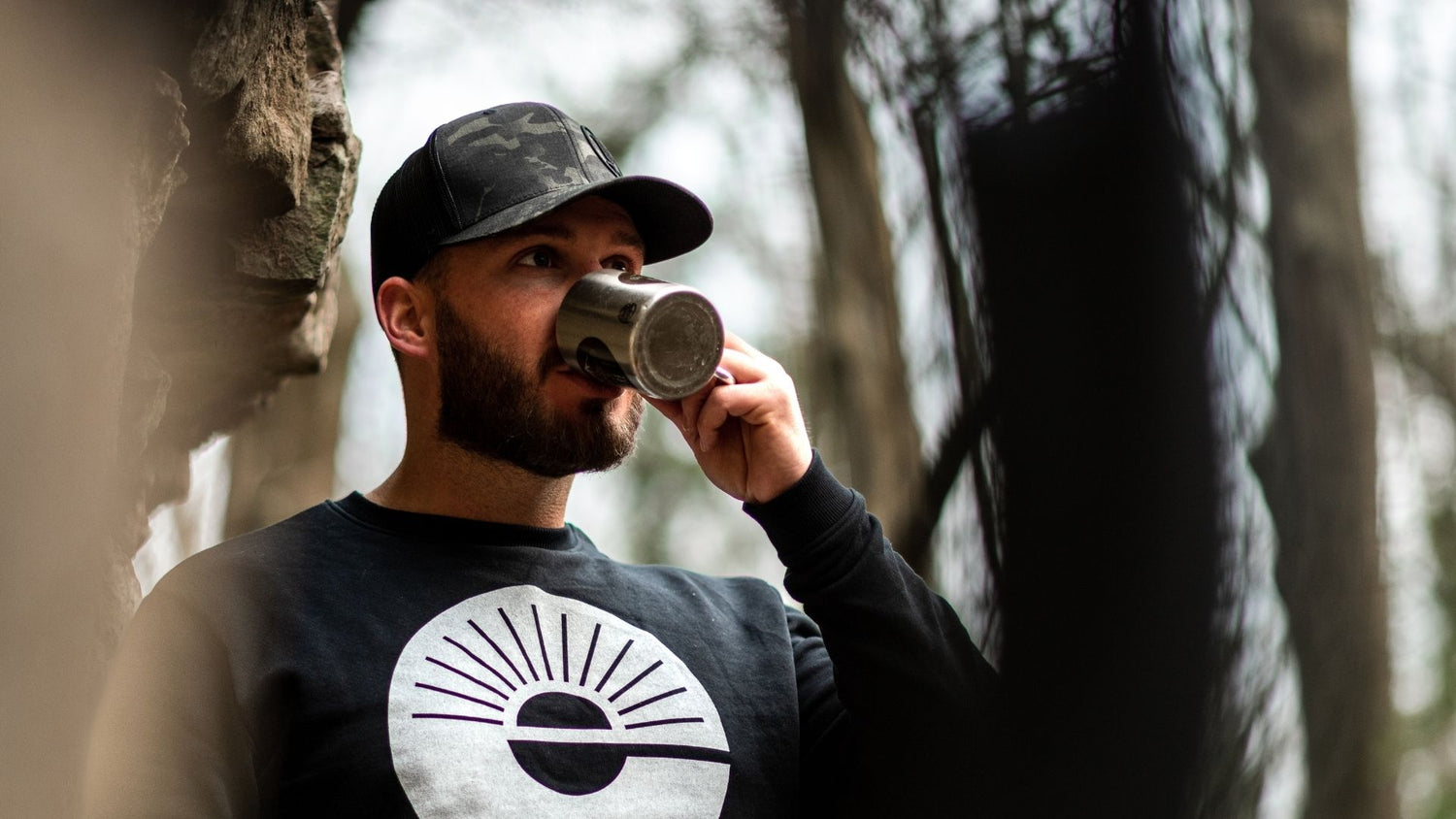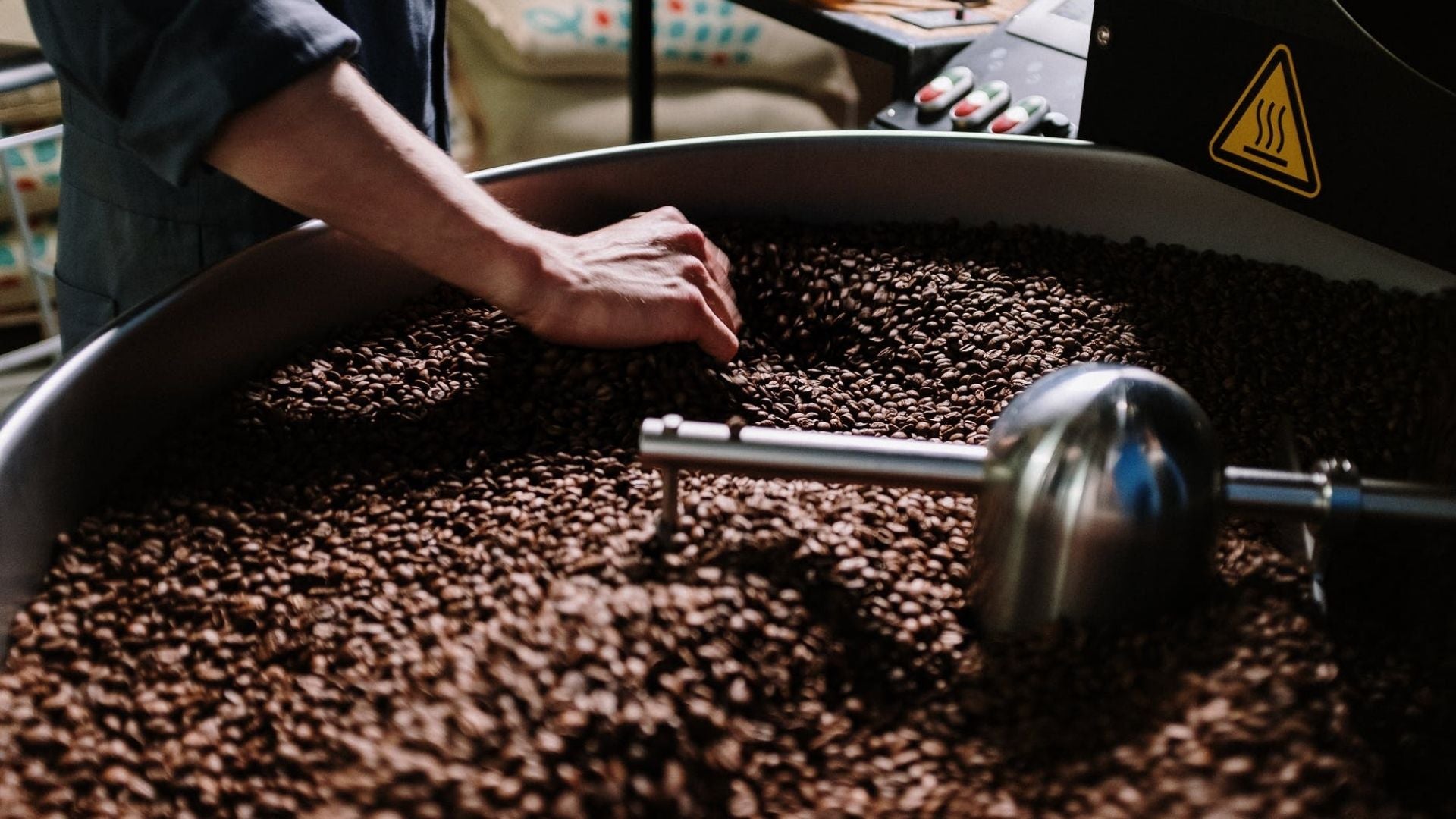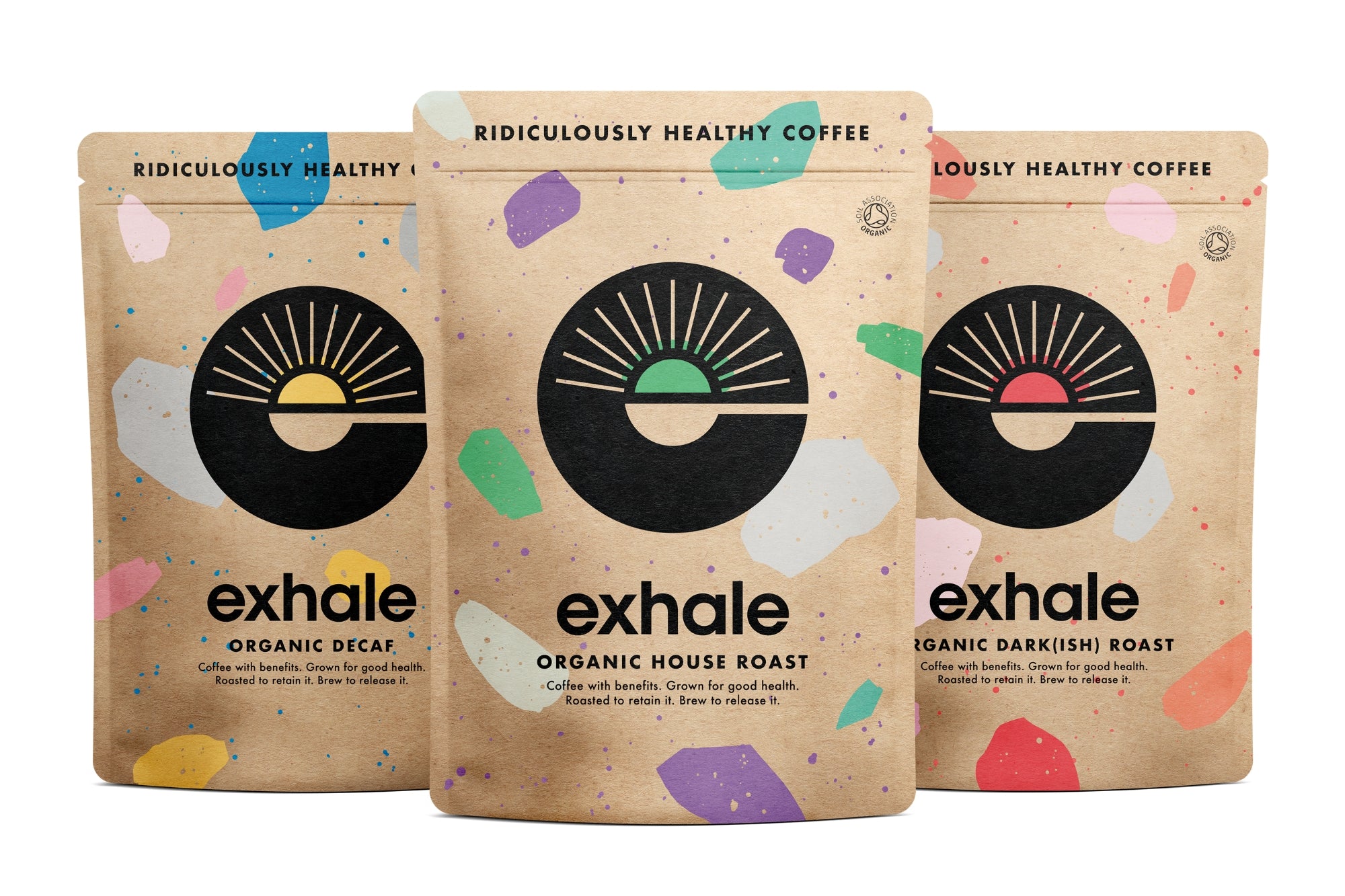In our minds here at exhale HQ, we’d argue that there is no such thing as too much coffee. We wake up. We have coffee. We come to work. We talk about coffee. We make a brew. We talk about coffee some more. Have a decaf. Go home. Go to bed and dream about coffee. Wake up. Repeat.
But, really, is there such a thing as too much coffee? It’s something we get asked alllll the time. On social, podcasts, in the queue at Tesco. Everywhere. The science-backed truth is, it’s not really a cut and dry thing, and there are a lot of factors at play.
It would take far too long to explain it all at the self-checkouts.
So, of course, we put it to exhale’s Chief Wellness Officer, Alex Manos to clear things up a bit.
exhale: First thing's first, is there such a thing as too much coffee?
Alex Manos: In short, yes there is. But it’s primarily going to be the caffeine that dictates whatever, for you, is too much.
e: Is there an “ideal” number of cups to have per day to max out the health benefits?
A: The sweet spot in the research is between three and five cups a day. That seems to be the amount required to get the maximum benefits that have been associated with coffee.
But, many of the health benefits have also been associated with decaf coffee, so they don’t have to be three-five cups a day of caffeinated coffee, it can be decaf for those that have a low tolerance.

e: Does everyone have a different tolerance to caffeine?
A: Tolerance is partly related to genetics. We know that caffeine is metabolised primarily by CYP1A2 (although other genes have been discussed). Genetic variations in this enzyme influence our capacity to metabolise the caffeine. Some of us are fast metabolisers and some of us are slow metabolisers. And, as you can imagine, fast metabolisers get a much faster and more intense hit from the caffeine and so get the jitters. Slow metabolisers get a longer lasting, more sustained effect from the caffeine, with the downside that it stays in their system for longer and can cause problems getting to sleep.
So, everyone will have a different tolerance and that is partly genetic but also closely related to our immediate environment. Our overall stress levels will have a huge impact in the amount of caffeine that we can tolerate.
I certainly know that if I’m stressed because of work or any other reason, I have to be more mindful of my caffeinated coffee consumption. And sometimes I’ll go for a half decaf/half caffeinated coffee in the morning, just as a way to reduce the amount of stimulus that I'm under.

e: So, is it not really a case of too much coffee, but too much caffeine? E.g. Can you just drink decaf all day long?
A: It is certainly more about the caffeine than the coffee. But the optimum quantity is still three-five cups a day, either caffeinated or decaf depending on someone’s individual tolerance. So, in theory, there would be some people who could drink decaf all day long, but bear in mind that there is a little bit of caffeine from other stimulants like theobromine in decaf. So, some people wouldn’t be able to handle say, 10 decaf coffees a day.
Generally speaking though, if we want to hit that sweet spot of three-five, for most of us that would be one or two caffeinated coffees, and then the remainder in decaffeinated coffees from midday onwards.
e: Why is 3-5 cups the sweet spot?
A: It’s really based on the magnitude of benefit that was seen when studies divided doses of caffeine or coffee.
For example, people that drink one cup a day didn’t receive as much benefit in what was being tested, compared to those who drank three-five. And people who drank over seven cups a day didn’t experience any more benefit than those who were in the three-five category. It’s essentially a classic bell-shaped curve of coffee quantity to benefit ratio.
And that relates to many different things that were tested. Things like all-cause mortality, reduced risk of neurodegenerative conditions, or any other biomarker that’s been studied.
For a deeper dive into the scientific studies out there, check out our science page.
e: exhale contains more antioxidants in one cup than in a whole punnet of blueberries – can it be harmful to have so many antioxidants?
A: Put simply, no. exhale have simply chosen a coffee bean that has the highest naturally containing chlorogenic acid (or polyphenols). And processed it to keep it that way. We’ve not artificially boosted the antioxidant status of the coffee bean.
(Learn more about the exhale process here.)
So realistically, there’s no concern or harm in having your three-five cups of exhale coffee per day. It’s a completely natural substance. I don’t know of any research that would suggest any cause for concern surrounding high-polyphenol foods that haven’t been enhanced in any way.
e: All caffeine-intake guidelines are in mg, how much is in a standard cup of cafetiere coffee?
A: This ranges significantly from 75-200mg of coffee, with the average being around 100mg. But, it varies widely depending on the coffee bean and the processing of it. So, now you know that you’re aiming for the “sweet spot” of three-five cups of coffee a day.





2 comments
Jayne
I have an espresso machine. Is your coffee made for espresso machines? How many is best to consumer per day?
Sarah
Hi very interesting but I have chronic pelvic pain syndrome. I’m not suppose to have any coffee but I do miss it. Do you think this will work on me? Coffee irritated my bladder
Leave a comment
All comments are moderated before being published.
This site is protected by hCaptcha and the hCaptcha Privacy Policy and Terms of Service apply.